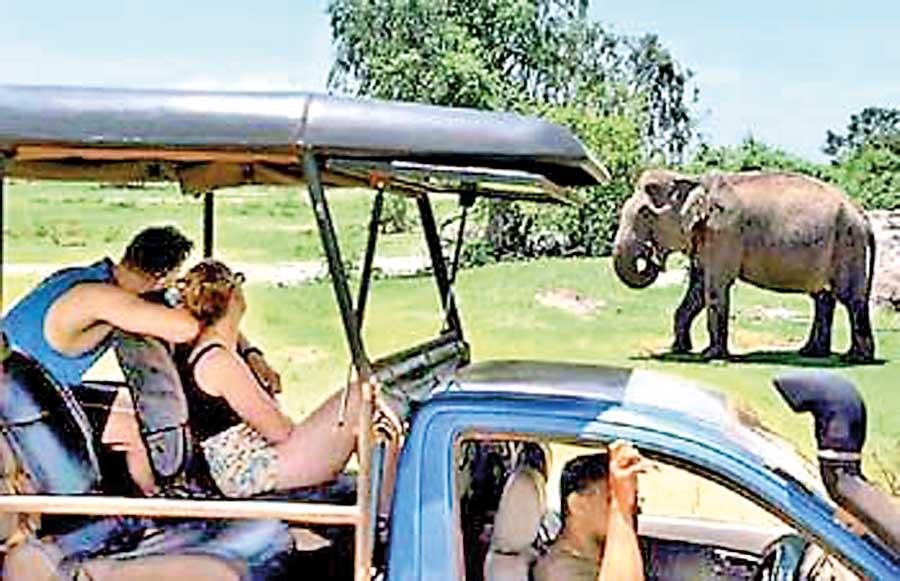Reply To:
Name - Reply Comment

The tourism trade is going through an expected softening due to the seasonality tied to the arrivals, but it has managed to eke out an income of US$ 154.0 million in May, data showed.
This was down from US$ 225.7 million in April but up from US$ 100.0 million a year ago when the trade was recovering from repeated crises.
Sri Lanka’s economy weakened due to waning inflows from tourism and other foreign currency inflows due to the 2019 Easter attacks, two years of pandemic induced restrictions over travel and in-person events, and then by the ‘Aragalaya’ in 2022.
It added to the challenges faced by tourism in its efforts to revive while the global travel industry started picking up from two years of pursuing stay at home orders due to the worldwide pandemic.
This caused many countries to put up travel advisories against their people who were thinking of taking flights to Sri Lanka, delaying what looked like a continuous recovery in the trade.
Now that the trade has recovered to its pre-pandemic levels, in the five months Sri Lanka has received US$ 1,405.6 million in inflows just shy of the 900,000 visitors mark.
This was an 86.9 percent increase from US$ 752.1 million earned in the same period last year from 524,486 travellers.
Arrivals total 15,666 from June 1 - 5
The reduced rate of tourist arrivals continued into June due to the off season, leading Sri Lanka to welcome 15,666 international visitors in the first five days of the month.
Provisional data released by the Sri Lanka Tourism Development Authority (SLTDA) showed that stakeholders expected the 900,000 tourist mark to be crossed by end May, the milestone was reached on June 1.
The daily arrival average has dropped to the levels of 3,100.
India continues to dominate as the largest tourist traffic generator for Sri Lanka. In June, so far, the neighbouring giant accounted for 27.7 percent of total arrivals.
Ranking second is the United Kingdom, contributing to 8.7 percent of the total arrivals.
In third place is China, accounting for 6.8 percent, while Bangladesh is in fourth place bringing in 5.5 percent of the total arrivals.